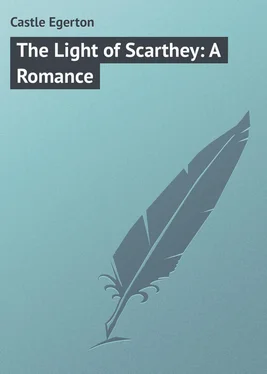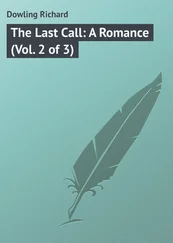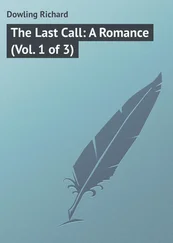Egerton Castle - The Light of Scarthey - A Romance
Здесь есть возможность читать онлайн «Egerton Castle - The Light of Scarthey - A Romance» — ознакомительный отрывок электронной книги совершенно бесплатно, а после прочтения отрывка купить полную версию. В некоторых случаях можно слушать аудио, скачать через торрент в формате fb2 и присутствует краткое содержание. Жанр: foreign_language, foreign_prose, Зарубежные любовные романы, на английском языке. Описание произведения, (предисловие) а так же отзывы посетителей доступны на портале библиотеки ЛибКат.
- Название:The Light of Scarthey: A Romance
- Автор:
- Жанр:
- Год:неизвестен
- ISBN:нет данных
- Рейтинг книги:4 / 5. Голосов: 1
-
Избранное:Добавить в избранное
- Отзывы:
-
Ваша оценка:
- 80
- 1
- 2
- 3
- 4
- 5
The Light of Scarthey: A Romance: краткое содержание, описание и аннотация
Предлагаем к чтению аннотацию, описание, краткое содержание или предисловие (зависит от того, что написал сам автор книги «The Light of Scarthey: A Romance»). Если вы не нашли необходимую информацию о книге — напишите в комментариях, мы постараемся отыскать её.
The Light of Scarthey: A Romance — читать онлайн ознакомительный отрывок
Ниже представлен текст книги, разбитый по страницам. Система сохранения места последней прочитанной страницы, позволяет с удобством читать онлайн бесплатно книгу «The Light of Scarthey: A Romance», без необходимости каждый раз заново искать на чём Вы остановились. Поставьте закладку, и сможете в любой момент перейти на страницу, на которой закончили чтение.
Интервал:
Закладка:
Then … but not now. Remembering now his unaccountable escape from the destruction which had swept from his side many another whose eagerness for the fray had certes not sprung, like his own, from a desire to court destruction, he shuddered. And there arose in his mind the trite old adage:
"Man proposeth…"
God had disposed otherwise.
It was not destined that Adrian Landale should be shot on the high seas any more than he should be drowned in the rolling mud of the Vilaine – he was reserved for this day as a set-off to all the bitterness that had been meted out to him; he was to see the image of his dead love rise from the sea once more. And, meanwhile, his very despair and sullenness had been turned to his good. It would not be said, if history should take count of the fact, that while the Lord of Pulwick had served four years before the mast, he had ever disgraced his name by cowardice…
Whether such reasonings were in accordance even with the most optimistic philosophy, Sir Adrian himself at other times might have doubted. But he was tender in thought this stormy night, with the grateful relaxation that a happy break brings in the midst of long-drawn melancholy.
Everything had been working towards this end – that he should be the light-keeper of Scarthey on the day when out of the raging waters Cécile would rise and knock and ask for succour at his chamber.
Cécile! pshaw! – raving again.
Well, the child! Where was she on the day of the last engagement of that pugnacious Porcupine , in the year 1805, when England was freed from her long incubus of invasion? She was then twelve.
It had seemed if nothing short of a wholesale disaster could terminate that incongruous existence of his.
The last action of the frigate was a fruitless struggle against fearful odds. After a prolonged fight with an enemy as dauntless as herself, with two-thirds of her ship's company laid low, and commanded at length by the youngest lieutenant, she was tackled as the sun went low over the scene of a drawn battle, by a fresh sail errant; and, had it not been for a timely dismasting on board the new-comer, would have been captured or finally sunk then and there. But that fate was only held in reserve for her. Bleeding and disabled, she had drawn away under cover of night from her two hard-hit adversaries, to encounter a squall that further dismantled her, and, in such forlorn conditions, was met and finally conquered by the French privateer Espoir de Brest , that pounced upon her in her agony as the vulture upon his prey.
Among the remainder of the once formidable crew, now seized and battened down under French hatches, was of course Adrian Landale – he bore a charmed life. And for a short while the only change probable in his prospects was a return to French prisons, until such time as it pleased Heaven to restore peace between the two nations.
But the fortune of war, especially at sea, is fickle and fitful.
The daring brig, lettre de marque, L'Espoir de Brest , soon after her unwonted haul of English prisoners, was overtaken herself by one of her own species, the St. Nicholas of Liverpool, from whose swiftness nothing over the sea, that had not wings, could hope to escape if she chose to give the chase.
Again did Adrian, from the darkness among his fellow-captives, hear the familiar roar and crash of cannon fight, the hustling and the thud of leaping feet, the screams and oaths of battle, and, finally, the triumphant shouts of English throats, and he knew that the Frenchman was boarded. A last ringing British cheer told of the Frenchman's surrender, and when he and his comrades were once more free to breathe a draught of living air, after the deathly atmosphere under hatches, Adrian learned that the victor was not a man-of-war, but a free-lance, and conceived again a faint hope that deliverance might be at hand.
It was soon after this action, last of the fights that Adrian the peace-lover had to pass through, and as the two swift vessels, now sailing in consort, and under the same colours cleaved the waters, bound for the Mersey, that a singular little drama took place on board the Espoir de Brest .
Among the younger officers of the English privateer, who were left in charge of the prize, was a lad upon whom Adrian's jaded eyes rested with a feeling of mournful sympathy, so handsome was he, and so young; so full of hope and spirits and joy of life, of all, in fact, of which he himself had been left coldly bare. Moreover, the ring of the merry voice, the glint of the clear eye awakened in his memory some fitful chord, the key of which he vainly sought to trace.
One day, as the trim young lieutenant stood looking across the waters, with his brave eager gaze that seemed to have absorbed some of the blue-green shimmer of the element he loved, all unnoting the haggard sailor at his elbow, a sudden flourish of the spy-glass which he, with an eager movement, swung up to bear on some distant speck, sent his watch and seals flying out of his fob upon the deck at Adrian's feet.
Adrian picked them up, and as he waited to restore them to their owner, who tarried some time intent on his distant peering, he had time to notice the coat and crest engraved upon one of the massive trinkets hanging from their black ribbons.
When at last the officer lowered his telescope, Adrian came forward and saluted him with a slight bow, all unconsciously as unlike the average Jack Tar's scrape to his superior as can be well imagined:
"Am I not," he asked, "addressing in you, sir, one of the Cochranes of the Shaws?"
The question and the tone from a common sailor were, of course, enough to astonish the young man. But there must be more than this, as Adrian surmised, to cause him to blush, wax angry, and stammer like a very school-boy found at fault. Speaking with much sharpness:
"My name is Smith, my man," cried he, seizing his belongings, "and you – just carry on with that coiling!"
"And my name, sir, is Adrian Landale, of Pulwick Priory. I would like a moment's talk with you, if you will spare me the time. The Cochranes of the Shaws have been friends of our family for generations."
A guffaw burst from a group of Adrian's mates working hard by, at this recurrence of what had become with them a standing joke; but the officer, who had turned on his heels, veered round immediately, and stood eyeing the speaker in profound astonishment.
"Great God, is it possible! Did you say you were a Landale of Pulwick? How the devil came you here then, and thus?"
"Press-gang," was Adrian's laconic answer.
The lad gave a prolonged whistle, and was lost for a moment in cogitation.
"If you are really Mr. Landale," he began, adding hastily, as if to cover an implied admission – "of course I have heard the name: it is well known in Lancashire – you had better see the skipper. It must have been some damnable mistake that has caused a man of your standing to be pressed."
The speaker ended with almost a deferential air and the smile that had already warmed Adrian's heart. At the door of the Captain's quarters he said, with the suspicion of a twinkle in his eye:
"A curious error it was you made, I assure you my name is Smith – Jack Smith, of Liverpool."
"An excusable error," quoth Adrian, smiling back, "for one of your seals bear unmistakably the arms of Cochrane of the Shaws, doubtless some heirloom, some inter-marriage."
"No, sir, hang it!" retorted Mr. Jack Smith of Liverpool, his boyish face flushing again, and as he spoke he disengaged the trinket from its neighbours, and jerked it pettishly overboard, "I know nothing of your Shaws or your Cochranes."
And then he rapped loudly at the cabin-door, as if anxious to avoid further discussion or comment on the subject.
The result of the interview which followed – interview during which Adrian in a few words overcame the skipper's scepticism, and was bidden with all the curiosity men feel at sea for any novelty, to relate, over a bottle of wine, the chain of his adventures – was his passing from the forecastle to the officers' quarters, as an honoured guest on board the St. Nicholas , during the rest of her cruise.
Читать дальшеИнтервал:
Закладка:
Похожие книги на «The Light of Scarthey: A Romance»
Представляем Вашему вниманию похожие книги на «The Light of Scarthey: A Romance» списком для выбора. Мы отобрали схожую по названию и смыслу литературу в надежде предоставить читателям больше вариантов отыскать новые, интересные, ещё непрочитанные произведения.
Обсуждение, отзывы о книге «The Light of Scarthey: A Romance» и просто собственные мнения читателей. Оставьте ваши комментарии, напишите, что Вы думаете о произведении, его смысле или главных героях. Укажите что конкретно понравилось, а что нет, и почему Вы так считаете.












